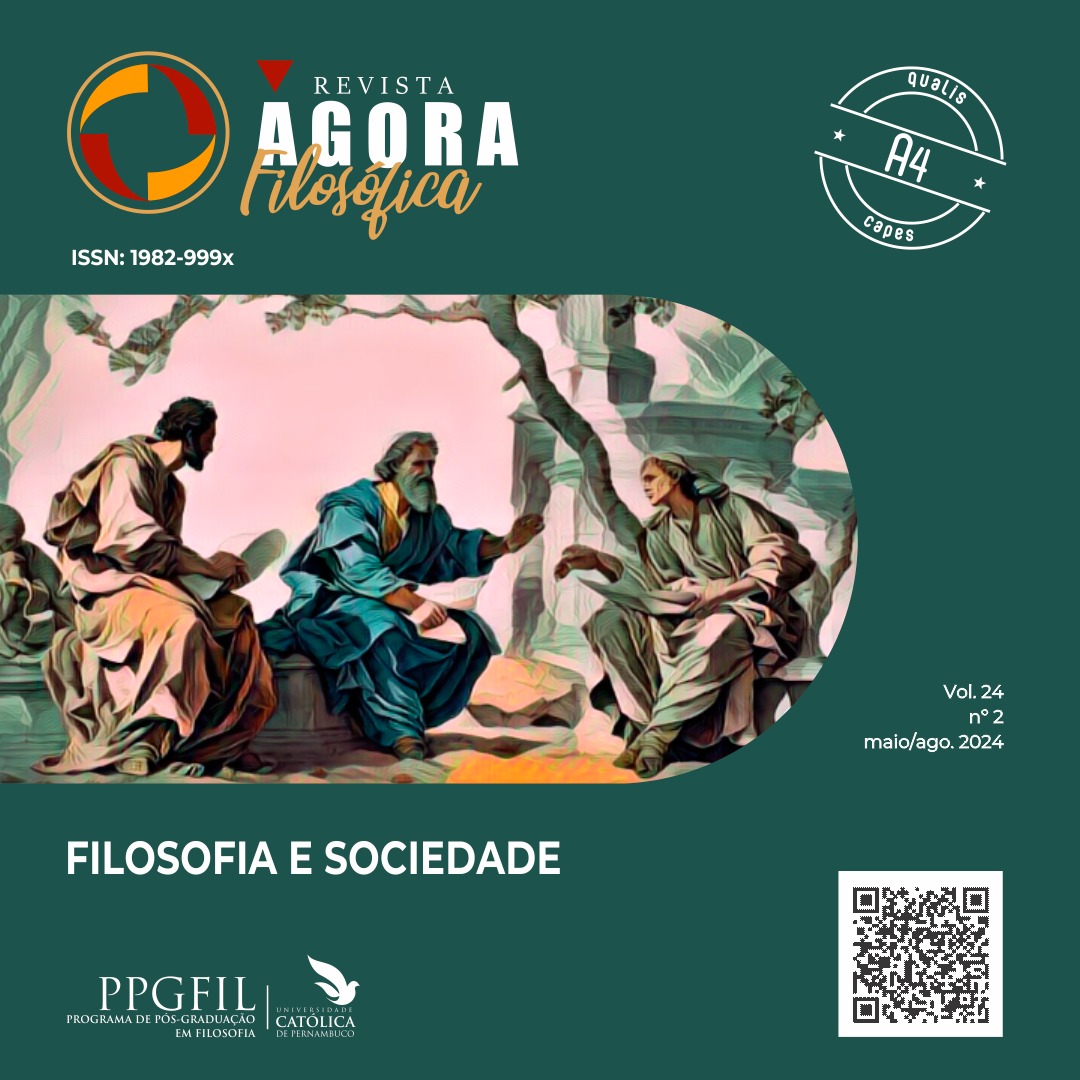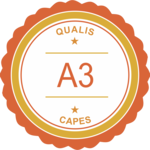The problem of the reform of the teaching of philosophy in Angola
DOI:
https://doi.org/10.25247/P1982-999X.2024.v24n2.p90-114Keywords:
epistemology, methodology, science, paradigm , investigationAbstract
This work is a logical result of the discussions that took place in 1991 in the context of the formation of the new political mentality in Angola. The discussions discussed above continued in the academy based on the reflections entitled “Process of reforming the teaching of Philosophy in Angola: some epistemological and methodical aspects”, and as a response, the article by Professor Muanamoni Matumona “The teaching of Philosophy in Angola” appeared. It was an imperative need to develop reforms in the teaching of philosophy due to the spirit of social changes existing in the country. This meant the restructuring and construction of a new model and paradigm of education and teaching, in which Philosophy was integrated. Our analysis focuses on understanding the reform process at three crucial moments: The teaching of philosophy in the post-colonial era and the current moment. With this simple theoretical contribution, we take as our main reference the intention of interacting, implicitly, two issues that title it: epistemology and methodology, without losing sight of the accentuated treatment of the theoretical foundations of the teaching and study of philosophy in Angola.
Downloads
References
ALMEIDA, António e Rodrigues João F.1938, o ensino colonial na Metrópole e sua influência sobre nossa administração ultramarina. 1º Congresso da história da expansão portuguesa no mundo, 5ª secção. Lisboa: Sociedade Nacional de Tipografia, 1938.
BOCHENSKI, J. M. Lógica formal antígua. Habana: Editorial Ciências Sociales, 1977.
BOLL, Marc. A história da lógica. Lisboa: Edições 70.
BLANCHÉ, Robert. A história da Lógica. Lisboa: Edições 70, 2001. (Col. O saber da Filosofia).
BLUMBERG, Albert E. 1976, Lógic. New York: A First course, 1976.
BORRÓN, Juan Carlos Garcia. A Filosofia e a Ciências: métodos e processos. Lisboa: Editorial Teorema,1988. (Colecção Teorema).
BURGUETE, Maria da Conceição. História e filosofia das ciências. Lisboa: Instituto Pieget. 2004. (Colecção pensamento e Filosofia).
CHARBONNEAU, Paul-Eugéne. Curso de filosofia, lógica e metodologia. 2. ed. São Paulo: E.P.U., 1996.
COPI, Irving M. Introdução à Lógica. 3. ed. São Paulo: Mestre Jou, 1981.
CUPAN, Alberto. Filosofia da tecnologia: um convite. 2. ed. Florianópolis:
Editora da UFSC, 2013.
DECLARAÇÃO DE PARIS PARA A FILOSOFIA. Disponível:
DEMO, Pedro. Introdução à metodologia da ciência. São Paulo: Atlas, 1995.
DESHAILES, Bruno. Metodologia de investigação em ciências humanas: epistemologia e sociedade. Lisboa: Instituto Piaget, 1992.
ESTATUTOS E PROGRAMA DO MPLA. Luanda: 1978.
FEERO, MAX. Elementos de metodologie en Ssciences sociales et humaines. Paris: Unversité Parisx-Nanterse, 1998-1999. (Col. Autores).
GALIANO, Gerson. Negócios e ética na direcção estratégica. Amesterdam: Elsevier, 1990.
GUETMANOVA, Alexandre. Lógica. Moscovo/Lisboa: Progresso, 1989.
HARRÉ, Ron. As filosofias da ciência. Lisboa: Edições 70, 1988. (Colecção: O Saber da Filosofia).
HUHNE, Leda 1999, Metodologia cientifica. Rio de Janeiro: Agir, 1999. (Cadernos de Textos e Técnicas).
KELLE, V. Teoria da história. Berlin: 1984.
KELLER, Vicente; BASTOAS Clerveson L. Aprendendo a lógica. 13. ed. Petrópolis: Vozes, 2004.
KRAPIVINE, Vassily. A filosofia marxista-leninista:sistema, metodologia e métodos de estudo. Moscovo/Lisboa: Progresso, 1982.
KOPNIN, V. Fundamentos lógicos da ciência. Rio de Janeiro: Civilização Brasileira, 1972.
LAKATOS, Imre. Histoire et metodologie. Paris: Puf, 1994.
LAKATOS, Imre. et. Al. Cristicism and the growth of knowledge. Reino Unido: Cambridge University Press, 1997.
LENIN, V. I. Materialismo e empiriocriticismo. Moscovo/Lisboa: Edições Progresso-Avante, 1982.
MALINOVSKI, Alexandre. Problemas actuais da reestruturação das ciências sociais. Luanda: 1990.
MARNOTO, Isabel. Didáctica da filosofia I. Lisboa: Universidade Aberta,1990.
MARSIP, Vicente. Ética, caracter, responsabilidade, consciência individual e compromisso social. São Paulo: E.P.U., 2002.
MATTER, João. Introdução à filosofia. São Paulo: Pearson Prentice, 2010.
MORTARI, César A. Introdução à lógica. 1. ed. São Paulo: Editora UNESP, 2001.
MINISTERIO DA EDUCAÇÃO. Reformulação do sistema de educação e ensino na República Popular de Angola e suas perspectivas. Luanda: 1981.
NÉRICI, Imídio. Lógica. 5. ed. São Paulo: 1978.
PEREIRA, Osvaldo Pochart. Ciencia e dialéctica em Aristoteles. São Paulo: UNESP, 2001. (Colecção: Biblioteca de Filosofia).
RADMUSKAIA, I. Dialéctica do conhecimento na física moderna. Lisboa: Estampa, 1974.
RELATÓRIO DO COMITÉ CENTRAL AO 1º CONGRESSO DO MPLA. LUANDA: 1977.
ROSÁRIO, Fernando. Desenho de programa de lógica formal para os cursos do ISCED de Luanda. Dissertação do Mestrado, Lubango, 2007.
RUIZ, João Álvaro. Metodologia cientifica: guia para eficiência nos estudos. São Paulo: Atlas, 1996.
SEGETH, W. Elementare logik. Berlin: Dietz Verlag, 1978.
THOMPSON, Mel. Philosophy. London: Teach Yourself, 2003.
VARGAS, Milton. Para uma filosofia da tecnologia. São Paulo: Alfa.Omega, 1994.
VIANA, Mário Gonçalves. Ética geral e profissional. Porto: Sarmento, 1963.
WIMSATT, William C. A filosofia desce à vida: aproximações fragmentáveis à realidade. Lisboa: Piaget, 2014. (Colecção Pensamento e Filosofia).
Downloads
Published
Issue
Section
License
Copyright (c) 2024 Feliciano Moreira Bastos

This work is licensed under a Creative Commons Attribution 4.0 International License.
You are free to:
- Share — copy and redistribute the material in any medium or format for any purpose, even commercially.
- Adapt — remix, transform, and build upon the material for any purpose, even commercially.
- The licensor cannot revoke these freedoms as long as you follow the license terms.
Under the following terms:
- Attribution — You must give appropriate credit , provide a link to the license, and indicate if changes were made . You may do so in any reasonable manner, but not in any way that suggests the licensor endorses you or your use.
- No additional restrictions — You may not apply legal terms or technological measures that legally restrict others from doing anything the license permits.
Notices:
You do not have to comply with the license for elements of the material in the public domain or where your use is permitted by an applicable exception or limitation .
No warranties are given. The license may not give you all of the permissions necessary for your intended use. For example, other rights such as publicity, privacy, or moral rights may limit how you use the material.
















